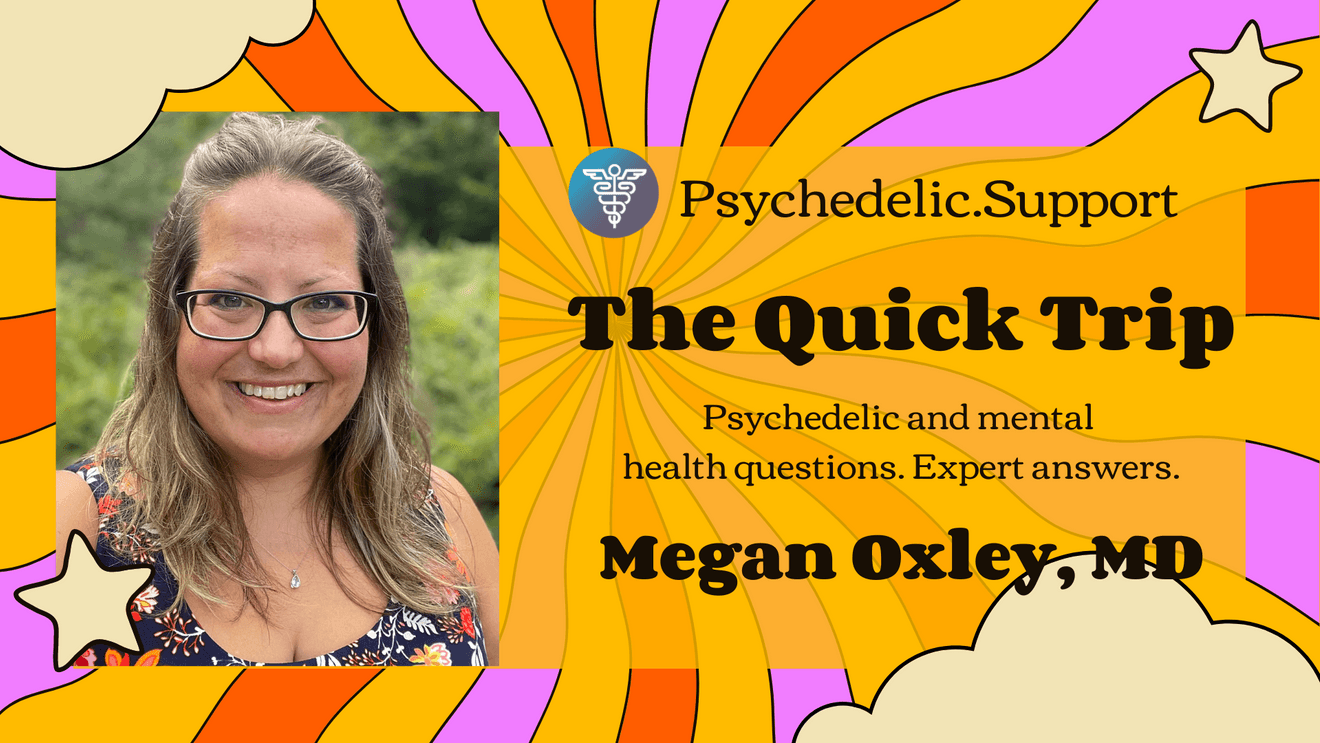Ketamine therapy at Michigan Progressive Health offers a unique and legal path to healing for many individuals. Megan Oxley, MD shares insights on this healing therapy and on how to launch a thriving clinic.
Getting to Know Dr. Megan Oxley
Dr. Megan Oxley is the founder and medical director of Michigan Progressive Health. A Board Certified Emergency Medicine physician, Dr. Oxley graduated from prestigious Wayne State University in 2009. She completed her residency training in Emergency Medicine in Detroit, serving the inner city. She spent a decade working in emergency departments in Michigan and Maryland. While researching options to help a family member with treatment resistant depression, she discovered the immense benefit that ketamine can have in chronic mood and pain conditions.
Megan Oxley, M.D. has built a ketamine practice at Michigan Progressive Health on two important principles: to provide medical relief for those struggling with problems that can often be improved with a ketamine therapy regimen and, to provide superior medical attention in a safe, clean and well-appointed facility.
Dr. Oxley is a founding member and former Vice President of the American Society of Ketamine Physicians, Psychotherapists and Practitioners (ASKP³), a group of board-certified physicians in the US actively pioneering ketamine treatment therapies for patients in need. For more information, visit askp.org.
She is fellowship trained in integrative psychiatry and has a special interest in using ketamine and future psychedelic medicines to help patients reduce their need on conventional psychiatric medications and improve their overall health.
Launching Ketamine Therapy at Michigan Progressive Health
Dr. Oxley started ketamine therapy Michigan Progressive Health after working with ketamine as an emergency physician. “I like to think about when I was training in emergency medicine… and using ketamine and watching people and children react to the medication and having such a curiosity about what was going on in their brains. If you’re two years old, what do you hallucinate about? What does it mean to dissociate when you hardly have an ego?
I had all these questions about the drug and had started using it for like alternative purposes, like migraines in the ER, just because I was so fascinated by it. And then, I came across research looking at ketamine and treatment resistant depression…There was quite a bit of science that had started to really solidify how we could be using ketamine and repeated doses to treat depression. I had a family member who suffered from treatment resistant depression.”
It doesn’t take long working with these medicines to understand the healing power and that compels you to keep going and growing and reach more people and do better and offer more.
Follow your Curiosity
Sign up to receive our free psychedelic courses, 45 page eBook, and special offers delivered to your inbox.“And the more I thought about it and looked around, there was one [only] clinic in Michigan at the time. I had this sense that this is where I was meant to be. A lot of the skill set really applied to me as an emergency medicine physician, and also having that compassion and understanding piece. It was really like a message from the universe, that this is where I needed to be. So that’s why I did it. How did I do it?
I basically found a business partner who was a good friend of mine, because I knew that I couldn’t start a business on my own. The joke is actually that I asked my partner before I even talked to my husband about the idea. And once they were in, because they were also passionate about mental health, I just started writing what ultimately became a business plan. I started writing processes and from there came the supply needs – they’ll have to see us on a website, so we need to make a website and then they’ll have to call us on a phone, so we’ll need phones.”
“And then we just did it. We just dove in, started finding an office, finding the supplies, finding the furniture, building the website. And thankfully my hunch was right that it would be a needed service, and it didn’t take us very long at all to be a sustainable, very small business. It was myself, a nurse, and my business partner for about a year. We were able to treat a lot of patients, thankfully, with many success stories early in the mix.
It doesn’t take long working with these medicines to understand the healing power and that compels you to keep going and growing and reach more people and do better and offer more. That has snowballed into the two locations, five therapists, four providers, 20 total employees after it’s been almost six years.”
Our Patients Educate Us
Dr. Oxley works to build the program she wishes she had when she started. “I read the studies and I attached to two physicians who were doing it and I kind of just jumped in. Thankfully for me that worked out well, because I have a very strong ethic of following the literature and being very rigorous in the care that I’m providing and why am I providing it. But there are certainly so many things that would’ve been helpful to know from the very beginning.
So, I really work on sharing that information of what you need to know about this work, both good and bad and, and really help people get a leg up and have less surprises. Then also really focusing on safety, which is physical and psychological. And, is why this medicine is a challenge also has been stalled in becoming more accepted: those who tend to the physical safety don’t have the knowledge to tend to the psychological safety, and those that have the knowledge to tend to the psychological safety don’t necessarily have the physical safety piece.
I’ve worked through ASKP3 and now the Integrative Psychiatry Institute, I’ve done education for both physicians and providers, but then also for those on the therapy side, to really understand how we can find this middle ground and work together…You have to know what you don’t know and understand your scope of practice and the limits of what you can and cannot do to really provide this medicine safely.”
“I wouldn’t say I’ve never made a mistake, but I also pride myself on learning from my mistakes and always asking, how do we do this better? What can we learn if a patient felt they weren’t given the level of support that we said that we were going to give them? What is it that we didn’t do? And to really take all of that feedback very seriously because our patients are the people who educate us.
Always being so thankful for patients to say, well, this didn’t turn out right for me. We all have trauma, and that’s going to influence how we experience these scenarios. But listening to all of that and still integrating. I don’t think we’re ever going to have patients who aren’t triggered or have something come up for them, but we are going to keep trying to make sure that doesn’t happen.”
Then also really focusing on safety, which is physical and psychological. And, is why this medicine is a challenge also has been stalled in becoming more accepted: those who tend to the physical safety don’t have the knowledge to tend to the psychological safety, and those that have the knowledge to tend to the psychological safety don’t necessarily have the physical safety piece.
To build a thriving clinic, you need the right mindset as much as skillset on your team. “At MPH, we have five core values that really help us pick new team members. Three [of the core values] are being compassionate, being open minded, and being educated. This field is ever evolving, we all need to stay up on and have a desire to stay up on what the research is saying and what our best practices are and what could we learn from other places.
Being open minded is really, really key for us. This means not judging patients or causing additional medical trauma. Coming from the ER side of things, being very acutely, painfully aware of how the medical system can traumatize and re-traumatize patients with judgment. The Western medical system is so judgmental. And making sure that we’re not bringing that to this table. No one at our clinic needs to be judged for whatever choices they made at the moment.
Everyone’s doing the best they can with what they have. And if you can’t come to an interaction with our patients with that core knowledge inside of you, then we don’t want you working with our patients. So those are the three most important values.
The fourth core value is that we are all dedicated to improving our own mental health. There’s a quote from Jung which essentially says, we all need to be on our own wounded healer journey, lest we become the wounded wounders. We all in the medical field can be guilty of perpetrating more trauma that comes from our own trauma. Without tending to ourselves, we aren’t going to be able to be the best healers.
Experiencing Ketamine Therapy at Michigan Progressive Health
“The minute you walk into Michigan Progressive Health, everyone tells us that they feel safe. We have light blue on the walls, we have traditional living room furniture, we have snacks, we have welcoming personnel. It is quiet, there’s salt lamps. There are sound makers, there’s water fountains, there’s plants. You’re supposed to feel like you’re walking into a home.
That first step in, patients can relax a little bit because they know this isn’t going to be a super brief intake, with no discussion about what actually matters. Like, 15 minutes, here’s your medicine, get out the door. Instead, it sets the stage that this is going to be a really good visit for you. When we do our consults, we schedule 90 minutes so patients do not feel rushed.
They see both a provider and a therapist, and it’s clear from the beginning that we’re going to try and take care of all aspects. We give the patients time to tell their story, and they tell their story. And we thank them for being open and honest and for sharing with us, because we’re two strangers and patients come in in their most vulnerable state. We are just from every interaction trying to help the patient understand that they’re going to be safe and cared for in our setting.”
Instead, it sets the stage that this is going to be a really good visit for you. When we do our consults, we schedule 90 minutes so patients do not feel rushed. They see both a provider and a therapist, and it’s clear from the beginning that we’re going to try and take care of all aspects. We give the patients time to tell their story, and they tell their story.
“And I think that people see that on our website, and they see that in our interactions. And I think that’s one of the things that really makes us stand out, that we’re not just trying to give people ketamine. We’re not trying to get them in as quickly as possible. We’re not trying to make them buy six infusions at one time. We’re really trying to decide what’s the best for the patient. What’s going to help them feel comfortable and safe with the process so that the process can actually work.
If the patient isn’t fully in alignment with us in the vision, we’re going to have a much harder time. We really work to make sure that this is the right thing and that we all feel good about that treatment plan. [We include] a lot of trauma informed care centering on safety and autonomy for the patients. We always say, you’re in charge of this room. You get to decide on this.”
Treating Patients with Mental Health Issues
I started doing research…and I just read more and more on the psychedelic side of the healing and really have just come to decide and feel like the traditional psychiatric system is failing people because the focus is really on the wrong place. It’s really focused on a drug to fix your brain. The physical brain is probably not really what’s the problem, right? It’s things that we’ve learned. It’s stories that we make about ourselves. It’s the way our brain is connected. It’s the trauma we’ve experienced as children. There’s so much more to it than that.
“I have a family member with treatment resistant depression. I’ve been on that journey with them for quite some time. As a medical professional, you’re always trying to help. The more we would be a part of the traditional psychiatric system, the more medications that we were trying, and it starts to not make sense. You shouldn’t have to try five or seven drugs to find the right one. You shouldn’t be having more and more side effects. You shouldn’t be getting sicker and sicker despite being on five meds. And then you go and see the psychiatrist and get two more. And, logically to me, both within my family and with the patients that I was working with, it just was not making sense.”
“I started doing research…and I just read more and more on the psychedelic side of the healing and really have just come to decide and feel like the traditional psychiatric system is failing people because the focus is really on the wrong place. It’s really focused on a drug to fix your brain.
The physical brain is probably not really what’s the problem, right? It’s things that we’ve learned. It’s stories that we make about ourselves. It’s the way our brain is connected. It’s the trauma we’ve experienced as children. There’s so much more to it than that. I was really feeling like my patients that were working with traditional psychiatrists were maybe not getting the right message.
Yes, Prozac can help, but you also need to go do therapy. And if you’ve had trauma, you need to go do trauma work. You can’t just get a prescription for Prozac and expect that you’re going to be better for the rest of your life.”
Future Growth Beyond Ketamine Therapy at Michigan Progressive Health
…when MDMA and psilocybin are approved, we’re first in line to be part of that administration. I think it’ll be interesting to see how each psychedelic will give patients certain types of healing and learning how to best kind of utilize all of them to help patients
“There’s only one other integrative psychiatry office in the Metro area. There’s a couple more in Ann Arbor, because it’s a little more progressive, but there’s just not enough psychiatrists that are taking a really big picture view – looking at diet, lifestyle, relationships, jobs, trauma, looking at all of the things that are really creating the experience that my patients are having of their mental illness.”
[Looking to the future, Michigan Progressive Health] aims to grow “the integrative psychiatry piece, so that even patients who aren’t doing actively working with ketamine can be treated by someone who is compassionate and nonjudgmental and takes the time to look at all the things that need to be looked at, and not just give them medication. Secondly, when MDMA and psilocybin are approved, we’re first in line to be part of that administration. I think it’ll be interesting to see how each psychedelic will give patients certain types of healing and learning how to best kind of utilize all of them to help patients.”
“We are [also] starting an end-of-life program. We have a hospice physician coming on board to do ketamine treatments for patients with end-of-life anxiety and depression…This is a physician who had been hearing about [ketamine for end of life] and was semi-retired, but really wanted to be doing more for her community.
Then honestly, my mother is in her own journey with dying and it was just like, you need to do this now. It all kind of like fell together on my plate. In some ways, ketamine can be as powerful as psilocybin, so I’m very hopeful that we will get similar results to the psilocybin trials.
So, [ketamine for end of life] should be happening actually pretty soon….And, [someday] we may or may not include [transcranial magnetic stimulation] TMS just because it’s a neuromodulatory, non-medication option that sometimes pairs really well with ketamine. We may or may not add that in to make it easier for our patients to get that. So those are our big, big things on the horizon.”
Have a Passion for the Patients
It’s a lot more to navigate than just giving people ketamine. And so, that’s usually my advice, is understanding what kind of patients you are wanting to work with…It is such a tender, but intense place for our patients to be when you’re suffering and no one’s understanding you and no one’s giving you relief. You have to feel passionate about dealing with working with that patient population, and if you don’t, then you shouldn’t be doing it.
Dr. Oxley recommends thinking about the patient population you want to serve, before thinking about the substance or the type of treatment you want to offer. “The physical administration of ketamine is pretty simple. It is very easy and many people can do it, but I think more people need to ask themselves whether or not they should be doing it and for what reasons they are doing it.
I know that the criticism is around like, oh, it’s a cash cow, but I just don’t think that everyone really understands how truly sick and challenging this patient population can be. It’s a lot of traumatized patients.
It’s a lot of patients who have very difficult stories. It’s a lot more to navigate than just giving people ketamine. And so, that’s usually my advice, is understanding what kind of patients you are wanting to work with…It is such a tender, but intense place for our patients to be when you’re suffering and no one’s understanding you and no one’s giving you relief. You have to feel passionate about dealing with working with that patient population, and if you don’t, then you shouldn’t be doing it.”
Reach out to Dr. Oxley and her team to learn more about ketamine therapy at Michigan Progressive Health online or by calling (248) 291-7709. Their welcoming staff is ready to answer your questions.






